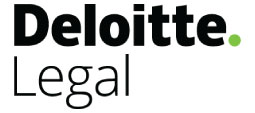The EU Directives on Work-life balance and on Transparent and predictable working conditions were introduced into the Hungarian national legislation in January 2023 and brought about significant changes and obligations for employers. What do they mean for businesses?
This report is designed to help companies to understand the requirements and how they have been implemented.
Implementation of EU Directive on Work-Life Balance (EU Directive 2019/1158)
Has the directive been implemented in the jurisdiction?
Yes.
What is the status of the implementation or draft implementation?
The Hungarian Parliament has adopted the amendment to the Hungarian Labour Code (Act I of 2012 on the Labour Code) and that is implementing the directive. The amendment came into force on 01 January 2023.
What are the key changes for employers and employees?
1. Paternity leave (“apasagi szabadsag”)
- The leave is to be used by a father (birth or adoptive) to care for a child.
- The leave lasts up to 2 weeks (10 working days).
- It can be taken at the latest up until the end of the second month following the birth of the child, or in the case of adoption, after the decision authorising the adoption becomes final.
- It qualifies as service period for the purpose of notice period and severance payment calculation.
The leave will be paid:
- From day 1 to 5: 100% of the absentee pay
- From day 6 to 10: 40% of the absentee pay.
2. Parental leave (“szuloi szabadsag”)
- This is a new type of leave.
- Both parents are entitled to it.
- Its length is 44 days.
- Conditions: the employee shall have a service period of at least 1 year, and it can be taken until the child’s 3rd birthday.
- It qualifies as service period for the purpose of notice period and severance payment calculation.
- It is paid at a rate of 10% of the employee’s absentee pay minus any child-care benefits paid for the same period.
3. Release from work for caregivers
- Employees shall be released from work for 5 days per year to care for or support a relative in need of significant care or support, or a person living in the same household as the employee, for a serious health reason.
- This leave is unpaid.
- It qualifies as service period for the purpose of notice period and severance payment calculation.
4. Flexible working arrangements
- Parents of children aged up to 8 years and caregivers who have a service period of at least 6 months can request flexible working conditions relating to the place of work and working schedule, or they can request telework or part-time work.
- The employer’s decision concerning the requests outlined above cannot be discriminatory and must be objectively justified. The court may provide the consent of the employer.
5. Protection
- The employer - at the employee's request - even in the absence of the obligation to provide reasons, shall provide reasons for the termination of the employment relationship, if, according to the employee's reference, the termination of the employment relationship occurred, because the employee exercised his/her right to: (i) take days off to care for or support a relative in need of significant care or support, or to a person living in the same household as the employee, for a serious health reason; (ii) take paternal or parental leave; (iii) go on unpaid leave to care for his/her child; or (iv) request flexible employment.
- The employers are not allowed to terminate the employment relationship with ordinary dismissal during the periods of paternity leave, parental leave and release from work for caregivers.
- For a child born after 02 August 2022, the father may also be entitled to additional paternity leave, and if the employee's child turns 3 between 02 August 2022 and 30 June 2023, parental leave shall be allocated at a time that corresponds to the employee's request during the period preceding 30 June 2023 at the latest.
What are the main actions for HR departments in preparing for the changes?
- Review, revise and prepare HR documentation such as:
- Policies, processes and forms;
- Objective criteria for granting flexible working conditions;
- Job descriptions, to assess whether flexible working conditions can be applied.
- Training to acquaint HR colleagues with the new rules.
Implementation of EU Directive on Transparent and Predictable Working Conditions (EU Directive 2019/1152)
Has the directive been implemented in the jurisdiction?
Yes.
What is the status of the implementation or draft implementation?
The Hungarian Parliament has adopted the amendment to the Hungarian Labour Code (Act I of 2012 on the Labour Code) and that is implementing the directive. The amendment came into force on 01 January 2023.
What are the key changes for employers and employees?
1. Probation period
- In the case of a fixed-term employment relationship being extended, or the re-establishment of a fixed-term employment relationship within 6 months of its termination, no probation period shall be stipulated for the employment in the same or a similar position.
- The duration of the probation period shall be proportionate in the case of an employment relationship that is established for a maximum of 12 months.
2. New elements of the information on employment terms which should be provided to the employee within 7 days of work starting
- Start date and term of the employment relationship;
- Place of work;
- Days of the week on which working time can be scheduled;
- Possible start and end time of the scheduled daily working time;
- Possible duration of overtime work;
- Specific nature of the employer's business activity;
- Number of vacation days;
- Rules relating to the termination of employment, in particular those rules for determining the notice period;
- Employer's training policy and the amount of time available for training the employee;
- The name of the authority to which the employer pays public charges relating to the employment relationship.
3. Information regarding posts abroad
New elements of information that the employer is obliged to provide:
- Remuneration applicable at the place of work, as well as the rules and conditions relating to the reimbursement of travel, food and housing expenses.
- The availability of the single official national website that contains important information relating to the rights and obligations of the employer that is providing cross-border services and of the employee that it sends to do the work.
4. Cost reimbursement
- Employers must provide employees free of charge with all training required to perform their tasks that is requested by the laws of the EU, national laws or collective bargaining agreements.
- The employer shall bear the necessary and reasonable cost of the mandatory training required to perform the job, and its duration is included in the employee's
working time.
What are the main actions for HR departments in preparing for the changes?
- Harmonisation of the employee notification letter, employment agreement and other documents with the new rules.
- Preparation of the training policy.
- Amendment of the letter informing the employee that they are being posted abroad and about the terms of
the posting.
By Brigitta Gal, Head of Employment Practice, and Lili Albert, Senior Associate, Deloitte Legal
This communication contains general information only, and none of Deloitte Touche Tohmatsu Limited (“DTTL”), its global network of member firms or their related entities (collectively, the “Deloitte organization”) is, by means of this communication, rendering professional advice or services. Before making any decision or taking any action that may affect your finances or your business, you should consult a qualified professional adviser. No representations, warranties or undertakings (express or implied) are given as to the accuracy or completeness of the information in this communication, and none of DTTL, its member firms, related entities, employees or agents shall be liable or responsible for any loss or damage whatsoever arising directly or indirectly in connection with any person relying on this communication. DTTL and each of its member firms, and their related entities, are legally separate and independent entities.


